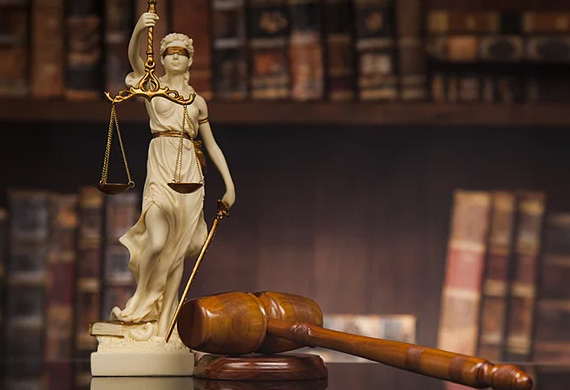
Gujarat High Court rules mere waiving consent does not invalidate women's Property rights
By: WE Staff | Wednesday, 14 July 2021
The Gujarat high court has ruled in an important decision that a mere consent affidavit by a sister waiving her rights to ancestral property cannot be treated as a relinquishment deed, and her right to a share in the ancestral property is not extinguished.
If her name is excluded without following the procedure outlined in Section 135D of the Gujarat Land Revenue Code, a woman can claim a share and challenge the mutation entry in the ancestral property. A simple consent affidavit waiving her rights in favour of her brothers is insufficient to terminate her property rights.
Shihor was the subject of the case before the Supreme Court. Haji Deraiya abandoned ancestral lands. Roshan Sorathiya and Hasina Kalvatar, his daughters, signed affidavits in 2010 giving up their share. This occurred while their father was still alive. In October of 2010, the father passed away. Following that, only the names of the three sons were recorded in the revenue records, based on consent affidavits from the sisters. The mutation entry was finalised in 2016.
After the land was transferred to three brothers in 2016, their sister, Roshan Sorathiya, approached the deputy collector to question the exclusion of her name based on an affidavit that was not a registered document. In 2017, her application to change her name was denied. In 2018, her revision application to the district collector was denied.
Roshan Sorathiya's appeal was also rejected by the revenue department's special secretary in June 2020, primarily on the basis of delay, holding that she questioned the distribution of the property more than six years after it was done on the basis of her relinquishment deed.
Sorathiya went to the High Court and challenged the revenue department's decision not to consider her name for a share based on her affidavit. Her lawyer argued that such consent could not be construed as a relinquishment deed.
It was argued that the woman's consent was not obtained in accordance with the procedure outlined in Section 135D of the Code, and that the mutation entry was incorrectly confirmed in 2016.
The brothers objected to the petition, claiming that she challenged the mutation entry at a late stage.
Most Viewed
- 1 Women's Health Startup HerMD Closing Doors Amid Industry Challenges
- 2 5 Famous Women in Indian Armed Forces
- 3 Saudi Women No longer Require Male Permission for Clothing Choices, says Prince MbS
- 4 Kolkata Medtech Startup Innovodigm Raises Rs 5.5 Crore Seed Funding Led by IAN Group
- 5 Yamunanagar's Kashish Kalra Honoured after Securing 111th Rank in UPSC Civil Services Exam
- 6 Madurai Appoints Its First Woman Corporation Head
- 7 IAS Vijayalakshmi Bidari Appointed as the new Nagpur Divisional Commissioner
- 8 American Entrepreneur Lucy Guo Overtakes T Swift to become Youngest Female Billionaire
- 9 ICC Women's World Cup 2025 Trophy Showcased at Indore's Holkar Stadium
- 10 Aparna Saxena's Beauty Venture AntiNorm Launches in India
- 11 Vidya Nataraj Co-Founded BlueStone Jewellery & Lifestyle files IPO
- 12 5 Women Freedom Fighters of India
- 13 Dr. G Krishnapriya appointed as CEO for Trichy
- 14 M3M & Sirona Partner to Introduce Menstrual Hygiene Vending Machines in 15 Locations
- 15 Punjab Govt launches SHE Cohort 3.0 Supporting Tech-led Women Startups
- 16 Indian origin Lawyer, Sweena Pannu appointed as the US New Superior Court Judge
- 17 The Aurora Tech Award recognizes 4 Indian Women-led Startups
- 18 Kerala's Republic Day parade featured an all-female tableau
- 19 Manisha Kabbur Becomes Karnataka's First Woman International Karate Coach
- 20 Director K. S. Ravikumar's Daughter Maalica Ravikumar Launches Life Coaching Company 'Evergrowth Academy' for Women
- 21 Leezu's Raises Pre-Seed Funding to Accelerate Growth in Sexual Wellness Industry
- 22 Sattu: Super-easy summer drink for PCOS gut healing
- 23 Swathi Nelabhatla creates Sitha App, India's First Women-Exclusive Gig Platform
- 24 7 Timeless Female Kathak Dancers & their Iconic Legacies
- 25 Meet 7 Iconic Women Architects of Modern India & their Most Impactful Work
- 26 This Woman-led Insuretech Startup is Helping Bridge the Education Financing Gap in India
- 27 Women Leaders Share Lessons Learnt from India Women's WC Win
- 28 5 Enterprising Women Founders Powering Singapore's Tech & Innovation Landscape
- 29 4 Women. 4 Stories. One Vision for Smarter, Stronger Healthcare
- 30 Global Gender Gap Narrows to 68.8%, But Full Equality 123 Years Away: WEF Report 2025
- 31 Changemakers: 7 Women Entrepreneurs Taking the Make in India Movement Forward
- 32 Meet Lucy Guo, The Youngest Self-Made Female Billionaire Disrupting Tech
- 33 How Women are Driving India's Festive Online Shopping Surge


.jpg)



